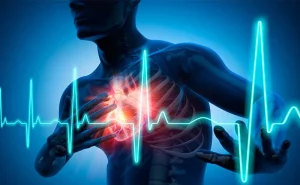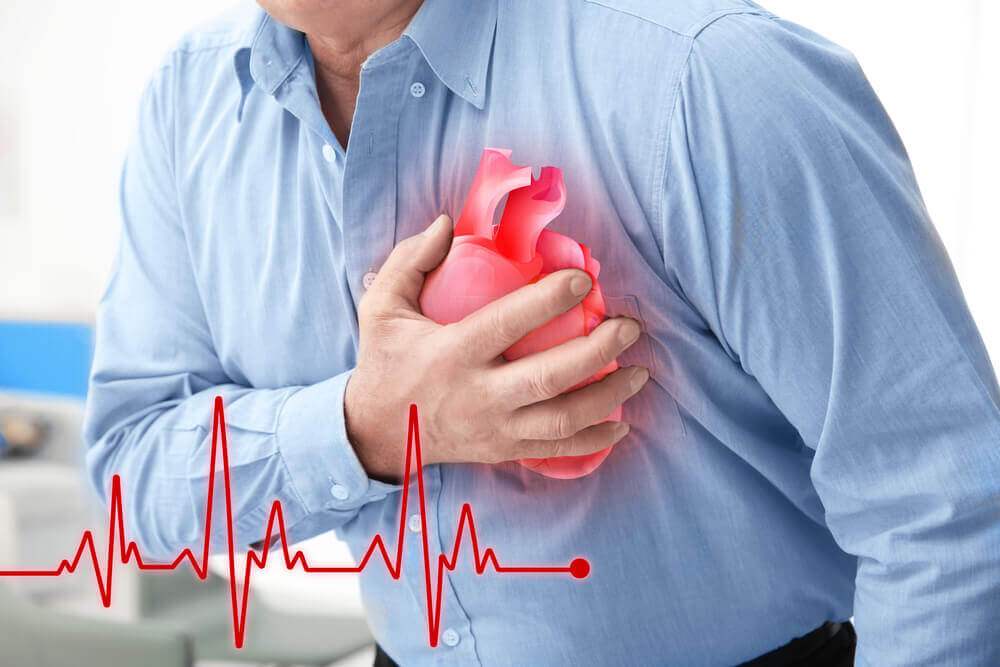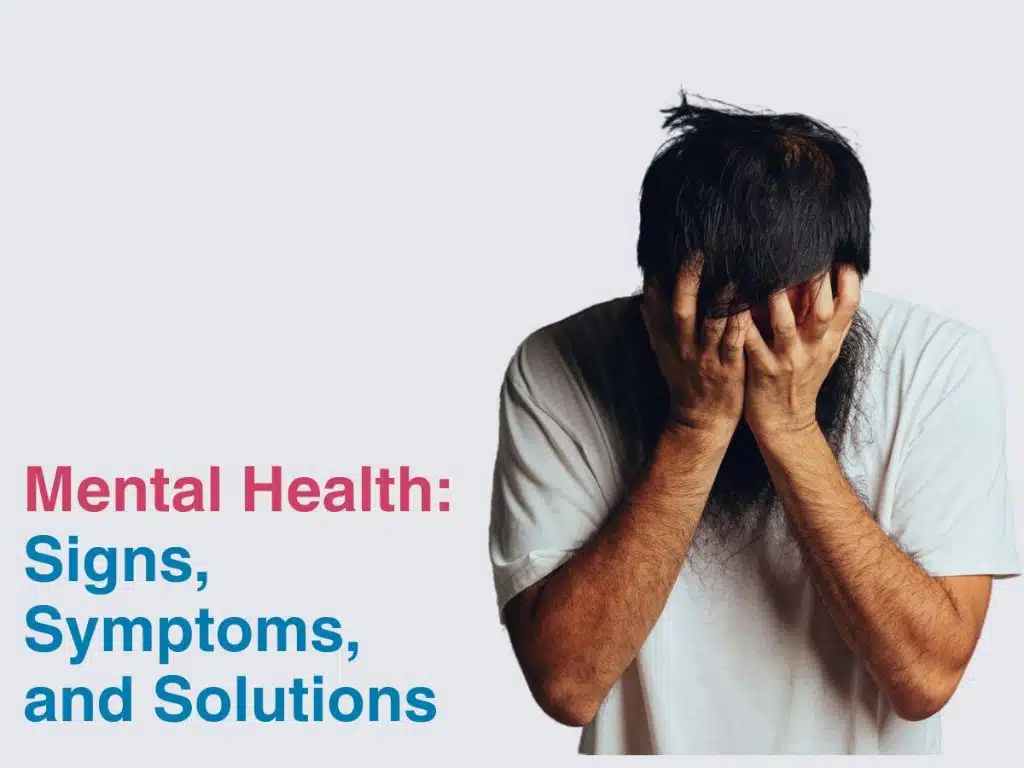
A heart attack (myocardial infarction) occurs when blood flow to a part of the heart muscle is blocked, depriving the heart of oxygen. This can cause serious damage to the heart if not treated promptly. The symptoms of a heart attack can vary between individuals, and while chest pain is often the most commonly recognized symptom, men may experience different signs. Here’s a detailed and comprehensive look at the symptoms of a heart attack in men:
1. Chest Pain or Discomfort
- Primary Symptom: The hallmark of a heart attack in men is often chest pain, though not everyone will have the same intensity or description of the pain.
- Quality: The pain is typically described as a crushing or tight feeling. It may feel like pressure, heaviness, or a heavy weight on the chest. The pain can last for several minutes or come and go.
- Location: The discomfort is most commonly felt in the center or left side of the chest, but it can radiate to the shoulders, arms (especially the left arm), neck, jaw, back, or stomach.
- Worsening Over Time: The pain might worsen with physical activity or emotional stress and can sometimes subside when at rest or with the use of medication.
2. Shortness of Breath
- Breathing Difficulty: Men may experience shortness of breath during or just before a heart attack, sometimes without any chest pain. This happens because the heart is not pumping effectively, leading to fluid buildup in the lungs.
- Increased Effort to Breathe: You may notice that even normal activities become more difficult because of the struggle to breathe.
- Restlessness: Men often feel a sense of air hunger, the sensation that they can’t get enough air, even at rest.
3. Sweating
- Cold Sweat: One of the most classic symptoms of a heart attack is breaking into a cold sweat, particularly if it occurs without any physical exertion. This may be accompanied by a clammy feeling on the skin, despite feeling unusually warm or cool.
- Excessive Sweating: In some men, the sweating can be so intense that it drenches clothing, which is a sign that the body is under significant stress due to a lack of oxygen.
4. Pain Radiating to Other Parts of the Body
- Arm, Neck, Jaw Pain: While chest pain is the primary symptom, it is common for the pain to radiate to other parts of the body. Men often report pain in the left arm, but it can also affect the right arm, neck, jaw, back, or even stomach.
- Discomfort in the Upper Abdomen: This may feel similar to indigestion or a burning sensation. It’s important not to confuse these sensations with common digestive problems, as they can be signs of a heart attack.
- Back Pain: Some men feel intense discomfort or pain in the upper back, sometimes between the shoulder blades, that can be confused with muscle pain.
5. Dizziness, Lightheadedness, or Fainting
- Feeling of Lightheadedness: A sudden feeling of dizziness or vertigo can occur during a heart attack, due to decreased blood flow to the brain.
- Risk of Fainting: In some cases, a heart attack may lead to fainting, or near-fainting. This is particularly concerning and should be treated immediately, as it can indicate significant cardiac impairment.
- Unsteadiness: A sense of being off-balance or disoriented may be a sign that the heart is struggling to pump enough blood to vital organs.
6. Fatigue and Weakness
- Unusual Fatigue: A sense of overwhelming tiredness or fatigue is a common symptom, especially in the hours or days leading up to a heart attack. Even minimal exertion may feel exhausting.
- General Weakness: Some men experience a profound feeling of weakness in the arms, legs, or the body as a whole. This can be a sign that the heart isn’t functioning optimally, leading to a decrease in oxygen delivery throughout the body.

7. Nausea, Vomiting, or Indigestion
- Gastrointestinal Distress: Many men experience nausea or vomiting, often along with chest pain. This is due to the disruption of normal digestive processes caused by the heart attack.
- Heartburn-like Sensation: The pain from a heart attack can sometimes be mistaken for severe indigestion or heartburn, leading people to think it’s just digestive discomfort.
- Abdominal Pain: Some may feel pain in the upper abdomen, or discomfort similar to a bloated or upset stomach, which can also be a sign of a heart attack.
8. Palpitations or Irregular Heartbeats
- Rapid or Irregular Heartbeats: During a heart attack, men may experience palpitations—the sensation of a rapid or irregular heartbeat. This can happen because the electrical impulses that regulate heartbeats are disrupted during the event.
- Fluttering: A feeling of the heart “skipping” beats or fluttering may also be reported by those suffering from a heart attack.
9. Anxiety and Feelings of Impending Doom
- Emotional Distress: Men sometimes experience feelings of anxiety, nervousness, or fear, particularly in the moments leading up to or during a heart attack.
- Impending Sense of Doom: Some people report feeling a sense of impending doom—the sensation that something catastrophic is about to happen. This emotional reaction is not uncommon during a heart attack and may be linked to the body’s stress response.
10. Coughing or Wheezing
- Persistent Cough: Some men develop a persistent cough, especially if the heart attack leads to fluid accumulation in the lungs (pulmonary edema).
- Wheezing: If fluid buildup impairs lung function, you may hear wheezing or a crackling sound when breathing, due to congestion in the lungs.

11. Sudden Change in Mental Status
- Confusion or Disorientation: In rare cases, a heart attack can cause confusion or a clouded mental state. This happens when the brain isn’t receiving enough oxygenated blood.
- Memory Problems: Some men may also experience difficulties with concentration or short-term memory during a heart attack.
12. Sudden Loss of Consciousness (In Severe Cases)
- Syncope: In very severe heart attacks, the loss of consciousness (fainting) may occur due to the heart’s inability to pump blood effectively, leading to a sudden drop in blood pressure.
- Cardiac Arrest: In some cases, if the heart attack leads to cardiac arrest, the person may stop breathing, lose consciousness, and require immediate emergency treatment, such as CPR.
Additional Points:
- Silent Heart Attacks: Not all heart attacks are characterized by clear, dramatic symptoms. Some men experience silent heart attacks, where symptoms are so mild or absent that they may go unnoticed or be mistaken for something else (such as fatigue, indigestion, or muscle pain).
- Risk Factors: Certain factors increase the likelihood of having a heart attack, such as a family history of heart disease, smoking, high blood pressure, diabetes, obesity, and high cholesterol.
Conclusion:
If you or someone else experiences any combination of the above symptoms, especially chest pain or shortness of breath, it is critical to seek emergency medical help immediately. Heart attacks can progress quickly, and fast treatment can significantly improve outcomes. It’s important to recognize these symptoms and act quickly, even if the signs seem mild or unusual.



 DailyMediCure
DailyMediCure 









